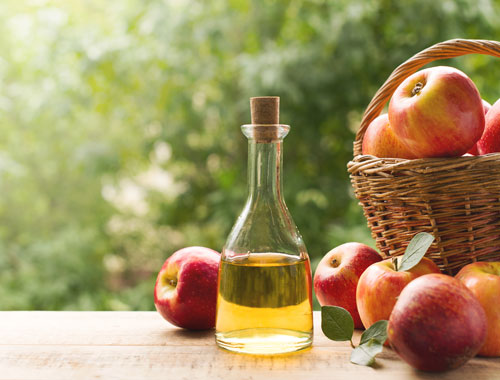Apple cider, a beloved beverage enjoyed during various seasons, offers a refreshing taste that tantalizes the taste buds. Whether sipped chilled on a hot summer day or mulled with spices during the cozy months of fall, apple cider holds a special place in the hearts of many. However, with the growing concern over sugar consumption and its impact on health, it’s essential to delve into the sugar content of this popular drink.
In this comprehensive article, we’ll explore the intricacies of sugar in apple cider, including its natural composition, added sugars, health implications, and alternative options. By understanding the sugar content in apple cider, consumers can make informed choices that align with their dietary preferences and health goals.
The Nature of Sugar in Apple Cider
At its core, apple cider consists primarily of pressed apples, resulting in a naturally sweet and flavorful beverage. The sweetness of apple cider arises from the natural sugars present in apples, primarily fructose, glucose, and sucrose. These sugars occur naturally in fruits and contribute to their taste profile.
The sugar content in apple cider can vary depending on factors such as the apple varieties used, the ripeness of the apples, and whether any additional sweeteners are incorporated during the production process. Generally, freshly pressed apple cider contains around 10-20 grams of sugar per 8-ounce serving, with variations based on factors such as apple variety and processing methods.
Added Sugars
While apple cider typically contains natural sugars from apples, it’s essential to distinguish between natural sugars and added sugars. Natural sugars occur naturally in foods like fruits and dairy products and are accompanied by essential nutrients such as vitamins, minerals, and fiber. In contrast, added sugars are those incorporated into food and beverages during processing or preparation to enhance sweetness.
In the context of apple cider, added sugars may include honey, maple syrup, or cane sugar, which are sometimes used to sweeten the beverage further. These added sugars contribute to the overall sugar content of the cider and can significantly impact its sweetness and caloric density.
When examining the sugar content of apple cider, it’s crucial to check the ingredients list for any added sweeteners. Opting for apple cider with no added sugars ensures a more natural and minimally processed beverage, preserving the inherent goodness of the apples.
Health Implications of Sugar in Apple Cider
The sugar content in apple cider raises questions about its impact on health, particularly concerning issues such as obesity, diabetes, and dental health. While the natural sugars in apple cider come packaged with essential nutrients and fiber, excessive consumption of added sugars can lead to adverse health effects.
One concern is the role of added sugars in contributing to caloric intake without providing significant nutritional benefits. Beverages high in added sugars, such as sweetened apple cider, can contribute to excessive calorie consumption, potentially leading to weight gain and obesity if not consumed in moderation.
Moreover, frequent consumption of sugary beverages like apple cider has been linked to an increased risk of developing type 2 diabetes. The rapid influx of sugar into the bloodstream can spike blood glucose levels, stressing the body’s insulin response over time. This chronic strain on the insulin-producing cells can contribute to insulin resistance, a hallmark of type 2 diabetes.
Additionally, the impact of sugary beverages on dental health cannot be overstated. The bacteria in the mouth feed on sugars, producing acids that erode tooth enamel and contribute to tooth decay and cavities. Regular consumption of sweetened apple cider without proper dental hygiene practices can increase the risk of dental issues over time.
Navigating Sugar Intake
Despite the potential health concerns associated with sugar in apple cider, it remains a popular beverage choice for many. To enjoy apple cider while minimizing the impact of sugar on health, consumers can adopt several strategies:
Choose Unsweetened Varieties: Opt for apple cider that contains no added sugars, ensuring a more natural and wholesome beverage. Check the ingredients list to verify that no additional sweeteners have been included during production.
Limit Portion Sizes: Enjoy apple cider in moderation and be mindful of portion sizes. Instead of consuming large quantities in one sitting, savor a smaller serving to satisfy cravings without overindulging in sugar.
Dilute with Water or Sparkling Water: To reduce the sugar concentration in apple cider, consider diluting it with water or sparkling water. This not only lowers the sugar content per serving but also creates a refreshing and hydrating beverage.
Explore Sugar-Free Alternatives: Experiment with sugar-free or reduced-sugar versions of apple cider, which use natural or artificial sweeteners to achieve sweetness without the added sugar content. Be mindful of artificial sweeteners’ potential effects and consume them in moderation.
Make Your Own: Take control of the sugar content by preparing homemade apple cider using fresh apples and minimal sweeteners, if any. This allows for customization according to personal taste preferences and dietary requirements.
By implementing these strategies, consumers can enjoy apple cider as part of a balanced diet while mitigating the potential health risks associated with excess sugar consumption.
Conclusion
Apple cider offers a delightful blend of sweetness and tanginess that appeals to many palates. However, understanding the sugar content in apple cider is essential for making informed dietary choices and promoting overall health and well-being. While natural sugars from apples contribute to the beverage’s flavor, added sugars can significantly increase its sugar content and calorie density.
By choosing unsweetened varieties, moderating portion sizes, and exploring alternative options, consumers can enjoy apple cider responsibly while minimizing the impact of sugar on health. Whether enjoyed cold on a summer afternoon or warmed up with spices on a chilly evening, apple cider can be a delicious addition to any beverage repertoire when consumed mindfully and in moderation.


























